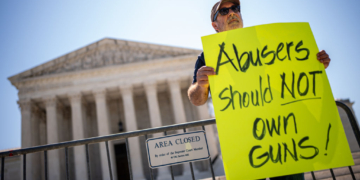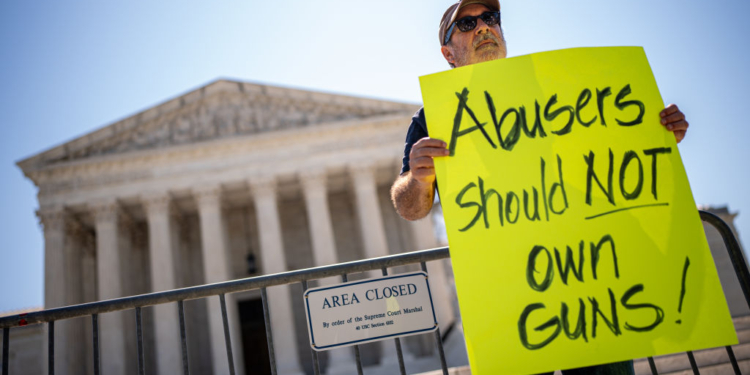The Supreme Court voted to uphold a federal gun control law intended to protect victims of domestic violence, per the Associated Press.
This case was first Second Amendment case since the court expanded gun rights in 2022.
The panel voted 8-1 in favor of a 1994 ban on firearms for people who have restraining orders to stay away from their spouses or partners.
This reversed a ruling from the federal appeals court in New Orleans that had voted against the law.
Chief Justice John Roberts wrote on behalf of for the court, saying the law is “common sense” and applies “after a judge determines that an individual poses a credible threat” of physical violence.
Justice Clarence Thomas dissented. Thomas was the author of the 2022 Bruen ruling in a New York case
Last week, the court overturned a ban on bump stocks, rapid-fire gun accessories used in the deadliest mass shooting in modern U.S. history in Las Vegas in 2017.
The court ruled the Justice Department exceeded its authority when it imposed the ban.
Friday’s case came from the Supreme Court’s Bruen decision in June 2022.
Zackey Rahimi of Texas was accused of hitting his girlfriend during an argument and later threatening to shoot her.
Some justices were concerned a ruling for Rahimi could jeopardize the background check system.
The Biden administration has said this system has stopped more than 75,000 gun sales in the past 25 years on the basis of domestic violence protective orders.
“Since the founding, our nation’s firearm laws have included provisions preventing individuals who threaten physical harm to others from misusing firearms,” Roberts wrote in his opinion.
He wrote some courts have gone too far in applying Bruen and other gun rights cases.
“These precedents were not meant to suggest a law trapped in amber,” he wrote.
In his dissent, Thomas wrote the law “strips an individual of his ability to possess firearms and ammunition without any due process.”
The government “failed to produce any evidence” the law is consistent with the nation’s historical tradition of firearm regulation, he wrote.
“Not a single historical regulation justifies the statute at issue,” Thomas wrote.


























 Continue with Google
Continue with Google